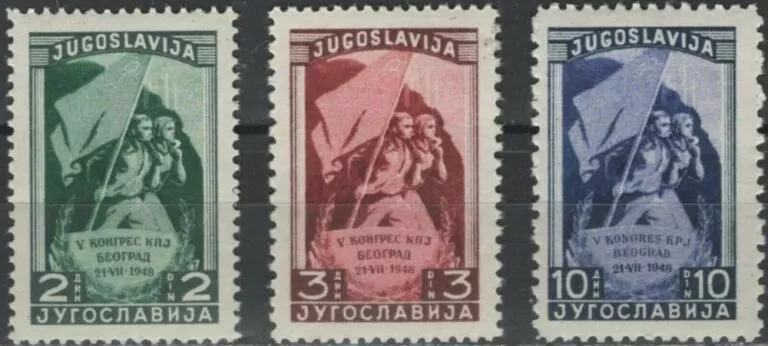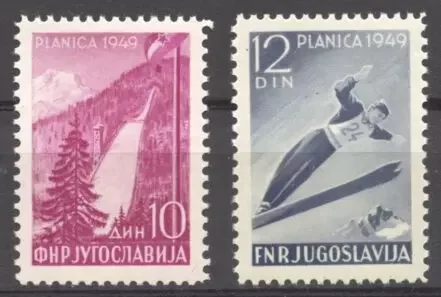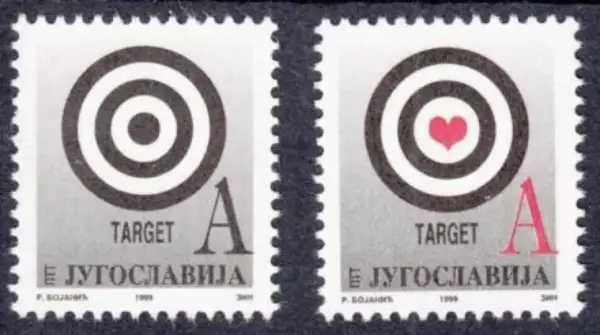Yugoslavia year 1948 stamps – Communist Congress
The Communist Congress of Yugoslavia in 1948, also known as the 5th Congress of the League of Communists of Yugoslavia, was a pivotal event in Yugoslav history. It marked the break between Yugoslavia and the Soviet Union, leading to the country’s departure from the Eastern Bloc and the subsequent establishment of an independent communist regime under Josip Broz Tito.
The 5th Congress took place in Belgrade from June 21st to June 28th, 1948, during a period of increasing tension between Yugoslavia and the Soviet Union. The primary purpose of the congress was to address the growing conflict between Yugoslav and Soviet communist leadership.
Key points and outcomes of the 5th Congress include:
- Denunciation of Soviet Hegemony: At the congress, Tito and other Yugoslav leaders openly criticized the Soviet Union’s attempts to exert control over Yugoslavia’s domestic and foreign policies. They accused the Soviet leadership, particularly Joseph Stalin, of interfering in Yugoslavia’s internal affairs and attempting to undermine its sovereignty.
- Assertion of Yugoslav Independence: The congress reaffirmed Yugoslavia’s commitment to an independent path of socialism, distinct from the Soviet model. Tito and other Yugoslav leaders emphasized the importance of national sovereignty and self-determination in shaping Yugoslavia’s socialist development.
- Establishment of the Non-Aligned Movement: The fallout from the 1948 congress ultimately led to Yugoslavia’s expulsion from the Cominform (Communist Information Bureau), the organization established by the Soviet Union to coordinate communist activities in Eastern Europe. In response, Yugoslavia pursued a policy of non-alignment, advocating for a third way between the Western and Eastern blocs. This laid the groundwork for the Non-Aligned Movement, which Yugoslavia played a leading role in founding in 1961.
- Consolidation of Tito’s Leadership: The congress solidified Tito’s position as the undisputed leader of Yugoslavia’s communist party and government. His defiance of Soviet pressure and assertion of Yugoslav independence earned him widespread support both domestically and internationally.
Overall, the 5th Congress of the League of Communists of Yugoslavia was a watershed moment in Yugoslav history, marking the country’s break from Soviet domination and its emergence as a key player in the non-aligned movement during the Cold War era.











Reviews
There are no reviews yet.